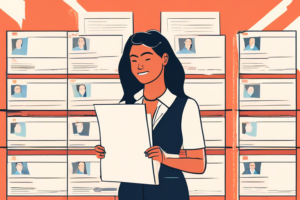-
Provided by

- Date published: Sep 18, 2023
- Categories
30-second summary
- Hilton has become a global leader in equal opportunities recruitment through its recruitment of candidates with learning disabilities.
- Discover how Hilton has built a tailored environment for these candidates through buddies, training, and carefully constructed interview environments.
- Learn how Hilton’s focus on learning disabilities recruitment has increased employee engagement and business performance.
The business case for hiring workers with learning disabilities is compelling. Studies tell us there is no significant difference in productivity between those with disabilities and those without; in fact, companies that lead the way on disability inclusion achieve consistently higher revenue than their peers.
And yet the vast majority of British people with learning disabilities struggle to find a job, held back by toxic stigmas and ignorant cliches. In the UK, research by the National Health Service has revealed that just 5.1% of adults with a learning disability known to their local authority are currently in paid employment.
The gap remains huge, but Hilton, one of the biggest corporate chains in the world, is determined to bridge it. Hilton’s own research has found that 89% of adults with learning disabilities have faced difficulties finding a job; these difficulties can range from fear of judgment at the interview stage to a lack of support from their employer once they start work. This backs up the findings of Mencap, whose 2020 report noted that employers often “do not know how to support people with a learning disability” and “it can be hard for them to find the money they need to [provide] the right support to learn.” Kay Harriman, Senior HR Director, Hilton UK&I, speaks to HRD about Hilton’s progress to date.
Bridging the learning disabilities recruitment gap
The giant hotelier has therefore partnered with two UK organizations: Workfit, the employment program of the Down’s Syndrome Association, and Aurora Foxes, a specialist hospitality training college in Somerset.
The partnerships have helped candidates secure a variety of positions within Hilton hotels, from journey ambassador to commis chef.
Inclusive interviewing
As well as offering work placements (something Hilton has done since the partnerships began), Hilton staff visit their partnership organizations and work with their management teams, while tutors from Foxes and coaches from WorkFit visit Hilton hotels to gauge whether their courses are relevant to real-life roles.
To help students overcome the anxiety barrier as they prepare for interviews, Hilton will put on practice sessions with those who have applied for roles and adapt the interview format to ensure each candidate can present the best version of themselves.
“On a really simple level, they may want to bring a chaperone,” Kay explains. We may also provide the questions in advance or provide prompt cards. We want to make the interview process as non-daunting as possible, but still allow the candidate to showcase what they can do.”
Once a candidate has passed the interview stage, they will embark on an adapted training program. Some of the mandatory courses provided to new starters will be virtual, and follow-up training is available to those who request it.
“It’s not just the job”, Kay says, “it’s ‘how do I get the bus?’ How do I get in? Where am I going to have my lunch? How am I going to get home? It’s the whole package, and we absolutely embrace partnerships for carers and parents in that as well.”
Disabilities support beyond recruitment
This initial acclimatization is backed up by a buddy system, pairing each new starter with a person in their department. A senior team member is also on hand to ensure the new hire feels welcome and is receiving the right support; WorkFit also provides coaches, and these senior colleagues provide a liaison point.
“If [new hires] go through any training, they’ve then got someone they sit and work with independently at a pace that works for them, which helps them assimilate everything that they’ve been trained.
“When selecting mentors and buddies within the department, we look for someone who’s not just knowledgeable in their job but empathic.”
The impact on recruitment and retention
At present, Hilton does not have any firm targets regarding the recruitment of people with learning disabilities – “I don’t think that’s the right approach,” Kay explains – but the results so far have been overwhelmingly positive. At the time of writing, Hilton has employed 40 people through Foxes and WorkFit, with a further 35 work placements, adding a vibrant infusion of talent to all corners of the organization.
“What’s really important here is guest feedback, particularly in hospitality, and we get really strong, positive comments from guests talking about the person that served them breakfast, the person that welcomed them at Heathrow, the person that took their bags.
“One of our team members in the concierge department at the London Metropole does so well with customer service: they’re the top earner in tips in the department and they get some great customer feedback. These colleagues are making a contribution to our business.”
Stephen Cassidy, Senior Vice President and Managing Director of Hilton UK and Ireland, said earlier this year that he is keen to inspire other organizations to also provide the opportunities and inclusion for those with learning disabilities. By doing so, they may also reap the benefits of increased “employee engagement and business performance” Hilton has seen since opening the partnerships with Foxes and Workfit. This is backed up by Kay, who is quick to praise the loyalty and commitment of colleagues from these talent pools.
“Something we talk a lot about in HR is retention rates and labor turnover, and the engagement and retention rate of this particular workforce is way, way stronger than what we see [elsewhere].
“The very first Foxes graduate joined us at the Hilton Birmingham Metropole and we are delighted that seven years later, she is still with us and still enjoying her job. And if you speak to Foxes, they’ll tell you roughly about 70% of the students that go on to receive a permanent job today.”
Sharing the learning journey
At present, these are solely UK partnerships; as Kay explains, other parts of the Hilton empire have their own initiatives. However, she and her fellow leaders are determined to share the learnings of their project. Hilton is hosting a workshop later this year, both to share best practices and help other companies work around the perceived challenges of employing people with learning disabilities.
And if Hilton could pass on any advice to other companies?
“Choose a good partner. One that works for you, that will understand your business, that will help their students understand the business and want to ensure that the partnership becomes a long-term commitment.”
“It isn’t about getting twenty people through by the end of it. It’s about developing a partnership where people succeed and growing it.”







